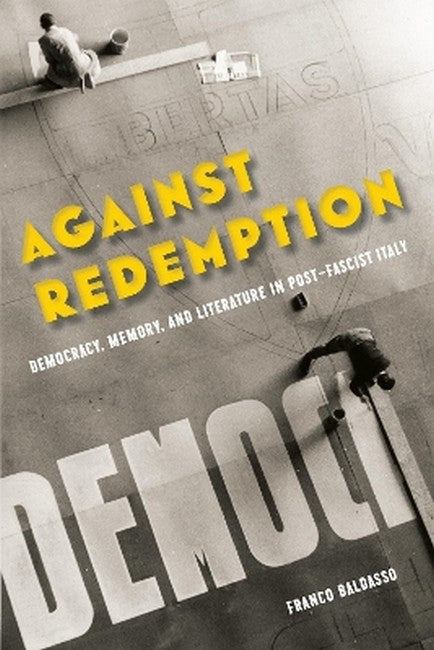Franco Baldasso is Assistant Professor of Italian and Director of the Italian Program at Bard College. He is Fellow of the American Academy in Rome and co-Director of the Summer School program at Sapienza University in Rome, "The Cultural Heritage and Memory of Totalitarianism."
Request Academic Copy
Please copy the ISBN for submitting review copy form
Description
Introduction: Ruins and Debris of a Contested History 1 1. After Italian Totalitarianism 27 2. The Language of Responsibility 65 3. Ghosts from a Recent Past 96 4. Carlo Levi on the Religion of the State 140 5. Curzio Malaparte, a Tragic Modernity 172 Conclusion: Tearing Down the Monuments 199 Acknowledgments 205 Notes 209 Bibliography 265 Index 295
[A] remarkable, challenging work. . . Highly recommended.-- "Choice Reviews" A critical engagement with the past: with Against Redemption, this is what Franco Baldasso offers powerfully, with intellectual finesse and conceptual precision.---Rosario Forlenza, Journal of Modern Italian Studies An ambitious, wide-ranging, and masterful rethinking of postwar Italian culture. Baldasso challenges the narrative--embraced by both Christian Democrats and Communists--of redemption and regeneration that was to undergird Italian society. In doing so, he gives us new ways of re-reading Italian postwar history. With a firm grasp of the theoretical underpinnings and their repercussions, he shows that the period of 1943-1948 was marked by an extraordinary and liminal ideological fluidity.---Stanislao Pugliese, Hofstra University Deflating cliches, debunking myths, filling in gaps: Baldasso's book brings to light a much more multifaceted and controversial picture of the transition from fascism to democracy in Italy. With sharp arguments, remarkable interdisciplinary breadth and crisp prose, Baldasso delivers a must-read book for anyone interested in how collective memory is institutionalized--and perhaps even dismantled.---Maria Anna Mariani, Assistant Professor of Italian Literature, University of Chicago, and author of Primo Levi e Anna Frank: tra testimonianza e letteratura

